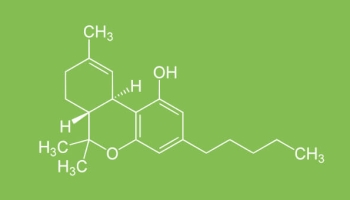Reading Time: 5 minutes
The main psychoactive ingredient of marijuana “weed” is tetrahydrocannaninol (THC). No matter how much you smoke, 1 hit, or a few, the THC you consume accumulates in fatty tissues throughout the body. Although the THC, itself, may only be detected for a time by certain tests, other metabolites of weed can remain much longer.
How long does weed stay in your system? That depends on several biological factors, the sensitivity of the testing measures and the chemical structure tested for as well as the amount of accumulated THC in your body.
About THC in Marijuana

Weed can stay in the body for months after it is used.
Average THC content varies by plant, usually anywhere from 1% to 5% potency, but, through advanced growing methods, there have been continuous increases in the amount of THC content produced in marijuana plants. Each plant can have different levels of THC from one leaf or flower to another and there is no way of knowing this without a formal testing.
Sinsemilla is derived from the un-pollinated female cannabis plant and is preferred for its high THC content (up to 17% THC).” When smoking marijuana, the buds or dried flowering parts of the plant are most desirable and typically, have more THC and burn more slowly than the leaves, allowing the consumer to absorb more THC.
Metabolizing THC
Everyone has different rates of metabolism and abilities to absorb the THC. Within those differences are varying rates at which the THC molecules, or metabolites, can be formed. There are at least 80 different metabolites that THC stores in body fat and eliminates through the urine and feces which also vary according to biological factors of the user. Height, weight, activities that make you sweat or burn fat, and other substances consumed can also play significant roles in retaining THC or the detection of its metabolites when tested.
Here are some important factors that impact the length in which THC remains in your system:
Body Weight
The higher your body weight, or BMI, the longer THC will likely be detectable. This is due in part to the fatty tissue in which THC gets stored.
Metabolism
Having a fast metabolism means your body is able to metabolize THC at a quicker rate, therefore reducing the detectability considerably.
Physical Activity

Physical activity impacts THC levels.
The more physically active you are, the quicker THC will exit your system. This is closely related to the speed of one’s metabolism; the more active you are, the higher your metabolism. Also, raising your heart rate and sweating helps to remove chemicals and toxins from the body, including THC.
Immune System
Having a poor immune system or chronic illness, especially liver or kidney disease, will make it take longer for THC to be untraceable. Your liver and kidneys, when functioning properly, work to rid chemicals and toxins from the body. Thus, when not working efficiently, the filtration process is prolonged.
How does the Delivery Method affect THC Levels?
The amount of THC absorbed depends on how often you partake and how you choose to consume marijuana. Here are the two primary ways people ingest pot and how it affects THC levels in the body.
Smoking Pot
After just one inhale of pot smoke, THC is detectable in the body. Smoking is not only the most popular form of pot ingestion, but also the quickest THC delivery method. THC levels in the bloodstream reach their peak within 10 minutes of consumption. However, it only takes about 15 minutes after the last puff for THC levels to drop by 60%.
If you’re an infrequent user, it could only take up to 12 hours for THC to be undetectable in your body. If you’re a repeated user, however, it could take over 3 months.
Eating Pot Products
Edible pot products are becoming more prevalent today, among both medical and recreational users, however they are still the less popular method of consumption. Unlike with smoking, it takes 1 to 5 hours after consuming edible marijuana for THC levels to reach their peak.
How Long Does Weed Stay In Your System According to Specific Tests?

The urine test is most popular for marijuana detection.
Weed only stays in the blood for a short time and while blood tests for weed can show current intoxication up to around 20 hours for THC and some of its metabolites (longer for others), these tests are generally not performed except in certain cases because they are expensive and time-consuming.
Urine
The most common test for weed is a urinalysis where the metabolite of 11-nor-delta9-tetrahydrocannabinol-9-carboxylic acid (delta9-THC-COOH) can be detected for days, weeks or in chronic users, possibly 3 months depending on the cutoff levels and sensitivities of the tests. Some heavy and chronic users have tested positive for the THC metabolite 10 months after ceasing use. Again it depends on what tests are being performed.
Blood
A blood test, unlike a urinalysis, only detects active THC, or recent marijuana use. This test may be administered if a person is suspected of driving under the influence.
Saliva
In saliva, the THC molecule of weed is also short lived, usually around 2–24 hours.
Hair
Hair tests can show use of THC for months, years, or until it falls out. At ½ inch of growth per month a 1and ½ inch strand can show positive up to 3 months if you used back then.
